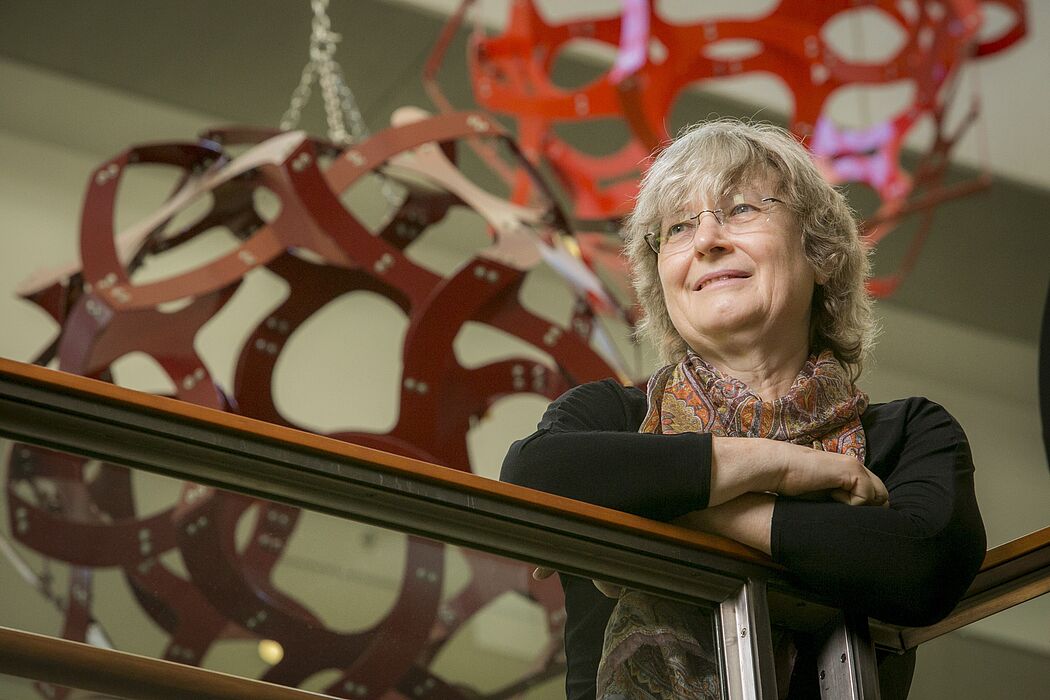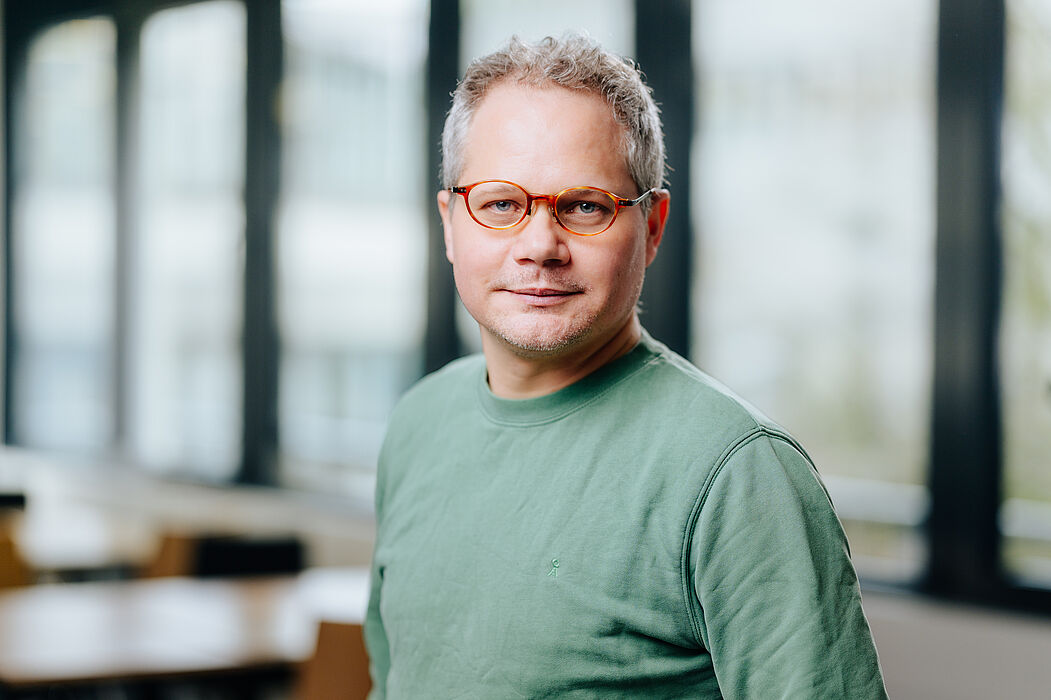Paderborn mathematician Prof Dr Martin Kolb on the research of Prof Dr Ingrid Daubechies
With her scientific work, Prof. Dr. Ingrid Daubechies has fundamentally changed signal and image processing. Many of today's image compression methods and other data processing techniques are based on her research into small mathematical tools known as "wavelets". The internationally honoured mathematician from Duke University has set new standards not only in her subject area, but also in numerous other disciplines. On Friday, 11 July, Prof. Daubechies will be a guest speaker at the Weierstrass Lecture 2025 at Paderborn University. Anyone interested can attend the event in lecture theatre O1; prior registration is not necessary.
"Wavelet" research with a strong interdisciplinary approach
"Prof Daubechies has made fundamental contributions in various fields of applied mathematics," explains Prof Dr Martin Kolb, Professor of Stochastics at Paderborn University. Her work in signal and image processing is particularly noteworthy. In 1987, Prof Daubechies constructed the first "wavelet basis", which consists of smooth, orthogonal functions with a compact carrier - known today as "Daubechies wavelets". These make it possible to analyse signals precisely and locally, allowing time and frequency-related information to be transmitted simultaneously. Unlike previous methods, they can also capture the smallest details without losing sight of the big picture. "This property is invaluable for image compression, data analysis and medical imaging," emphasises Prof. Kolb.
"Wavelets" are used today, for example, in the medical analysis of X-ray images or the restoration of works of art. "In addition to important intrinsic questions, mathematical research has always had a side that is strongly driven by developments from neighbouring disciplines," says Prof. Kolb, who sees Daubechie's research as a special connection between mathematics and many other scientific disciplines. "Wavelets" are therefore not only relevant for mathematical contexts, but also, for example, central tools for dealing with issues in engineering and the natural sciences.
In view of new challenges such as quantum computing or machine learning, Prof. Kolb also recognises the growing importance of applied mathematics: "The last few years have made it clear how important in-depth mathematical methods are for understanding and developing new technologies. Prof Daubechies' work not only paved the way for this, but is still highly relevant today."
About Prof Dr Ingrid Daubechies
Prof Daubechies has been a professor at Duke University in Durham in the USA since 2011. Prior to this, she held various academic positions at Princeton University, also in the USA. She is a member of the US National Academy of Sciences and has received numerous honours: Last year, she received the prestigious "Bakerian Medal and Lecture" from the Royal Society, UK. In 2023, she was awarded the Wolf Prize in Mathematics. In 2019, she was awarded an honorary doctorate from Harvard University, Cambridge, USA, and the L'Oréal-UNESCO for Women in Science Award. She received the "Benjamin Franklin Medal in Electrical Engineering" from "The Franklin Institute" in Philadelphia (USA) in 2011.
This text was translated automatically.



